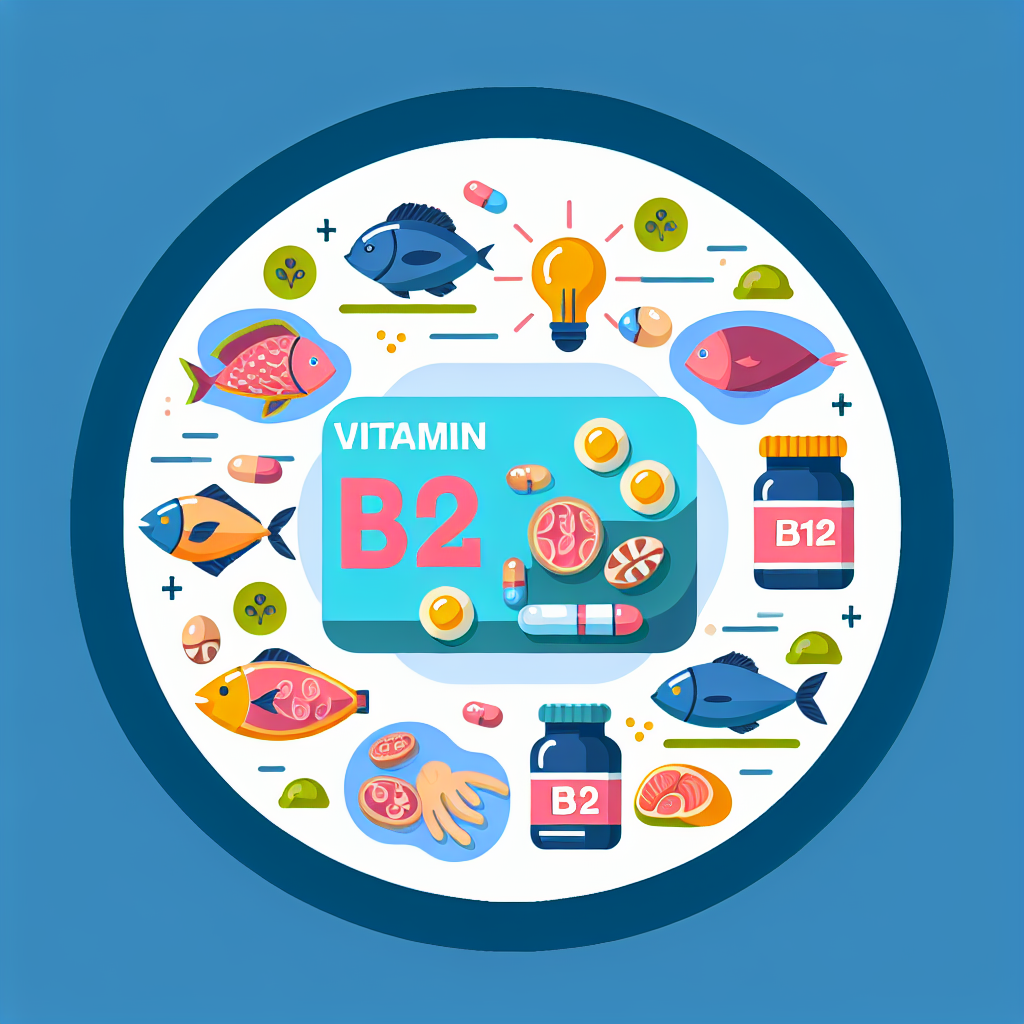Vitamin B12 is an essential nutrient responsible for keeping your body’s energy levels high, your mind sharp, and your nerves working at their best. Despite its importance, it often goes unnoticed until deficiency symptoms start to appear. Whether you’re feeling exhausted, struggling to concentrate, or experiencing tingling sensations, these could be signs that your B12 levels need attention.
In this guide, we’ll explore the role vitamin B12 plays in your health, the best food sources, common deficiency symptoms, and how to ensure your body gets enough through diet or supplements.
What Is Vitamin B12 and Why Does Your Body Need It?
Vitamin B12, also known as cobalamin, is a water-soluble nutrient essential for many processes in your body. Think of it as a multitasking vitamin—it’s involved in energy production, maintaining nerve health, forming red blood cells, and supporting DNA synthesis. Without it, everything from your energy levels to your cognitive function can be negatively impacted.
B12 is unique because your body can’t produce it on its own. It must be absorbed through food or supplements. Regular intake is crucial since your body stores only small amounts.
Key Benefits of Vitamin B12:
- Energy Production: Converts carbohydrates, fats, and proteins into usable energy.
- Nerve Function: Maintains the protective sheath around your nerves.
- Red Blood Cell Formation: Prevents anemia and reduces fatigue.
- Cognitive Support: Encourages clear thinking and memory retention.
Foods High in Vitamin B12
So, where can you find vitamin B12? While animal products are the richest sources, fortified options make B12 accessible to vegans and vegetarians as well.
Best Natural Sources of Vitamin B12:
- Meat: Beef, pork, lamb, and organ meats (such as liver).
- Seafood: Salmon, trout, sardines, clams, and crab.
- Dairy and Eggs: Milk, cheese, yogurt, and eggs provide moderate levels of B12.
Fortified Sources for Plant-Based Diets:
- Fortified cereals enriched with B12.
- Nutritional yeast, a popular vegan choice.
- Non-dairy milks like soy, almond, and oat milk with added B12.
A friend of mine, who follows a vegan lifestyle, swears by nutritional yeast. She adds it to pasta, soups, and even popcorn, calling it her “magic seasoning” for meeting her nutrient needs.
Signs and Symptoms of Vitamin B12 Deficiency
Vitamin B12 deficiency often starts subtle but can escalate over time if left untreated. The symptoms can include physical, mental, and even emotional changes that impact your everyday life.
Common Deficiency Symptoms:
- Fatigue: Constant tiredness regardless of how much rest you get.
- Nerve Issues: Tingling or numbness in hands and feet.
- Memory Problems: Difficulty concentrating or experiencing brain fog.
- Mood Changes: Increased irritability or feeling unusually down.
- Skin Changes: Pale or slightly yellow skin, often linked to anemia.
At-Risk Groups:
- Vegetarians and Vegans: Plant-based diets lack natural sources of B12.
- Older Adults: Reduced stomach acid production limits B12 absorption.
- People with Digestive Issues: Conditions like Crohn’s disease or celiac disease can interfere with absorption.
If you fall into one of these categories, monitoring your B12 intake is essential to avoid deficiency and its effects.
Testing and Treating Vitamin B12 Deficiency
If you suspect a deficiency, the good news is that testing for vitamin B12 is simple—it involves a routine blood test. Once diagnosed, there are effective treatments available based on the severity of the deficiency.
Treatment Options:
- Diet Adjustments: Incorporate more B12-rich and fortified foods to boost your levels naturally.
- Supplements: Tablets, liquids, or sublingual forms are widely available and easy to use.
- B12 Injections: In severe cases, injections might be prescribed for rapid improvement.
My aunt, who struggled with fatigue for months, found her deficiency improved dramatically after a combination of diet adjustments and supplements. Within weeks, her energy levels returned, proving how effective treatment can be.
Should You Take Vitamin B12 Supplements?
Vitamin B12 supplements can be a lifesaver for many, but they’re not always necessary for everyone. The decision depends on your diet, lifestyle, and medical history.
Who Should Consider Supplements?
- Vegans and vegetarians who don’t consume fortified foods.
- Older adults whose stomachs absorb less B12 over time.
- Pregnant or breastfeeding women who have higher nutritional needs.
- Anyone with absorption issues caused by digestive conditions.
Daily Dosage Recommendations: Most adults need 2.4 micrograms of vitamin B12 daily, although individual needs may vary. Many supplements exceed this amount, but since excess B12 is excreted by the body, taking higher doses is typically safe. Always check with your doctor to determine what’s right for you.
The Health Benefits of Vitamin B12
Beyond preventing deficiencies, vitamin B12 offers several key health benefits that can improve your quality of life. Here’s how it helps:
- Energy Boost: B12 ensures your body has the fuel it needs to stay energized throughout the day.
- Brain Health: It supports memory and cognitive function, reducing the risk of mental decline as you age.
- Mood Stability: Aids in producing serotonin and dopamine, helping to reduce stress and improve emotional well-being.
- Nerve Function: Protects your nervous system and prevents numbness or tingling sensations.
With all these benefits, it’s clear that maintaining healthy B12 levels is an easy yet powerful way to improve your overall health and vitality.
Conclusion
Vitamin B12 is a nutrient you don’t want to overlook. It powers your energy, sharpens your brain, supports your nerves, and contributes to your overall well-being. Whether you get it through a balanced diet, fortified foods, or supplements, ensuring your body gets enough can make a noticeable difference in how you feel.
If you’re experiencing symptoms like fatigue, brain fog, or tingling sensations, now is the time to act. Evaluate your intake, consult your healthcare provider, and take steps to boost your levels. By prioritizing your B12 health, you can unlock a healthier, more energetic version of yourself.
